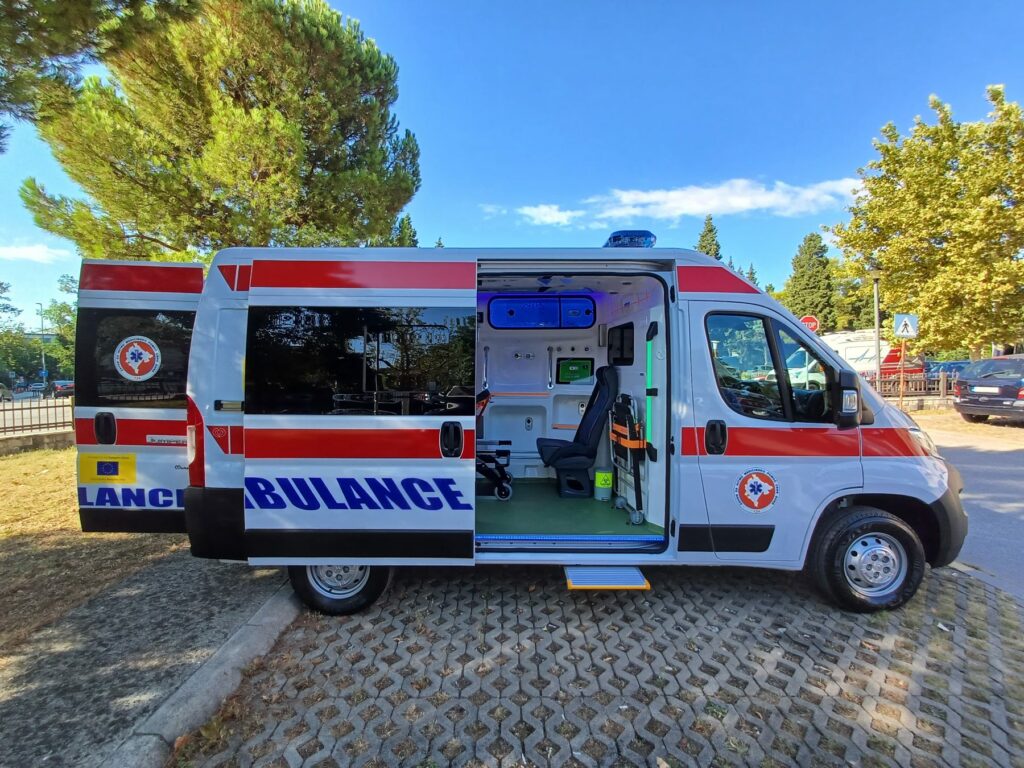The Minister of Health Dragoslav Šćekić handed over the keys of the new ambulance to the Head of the Emergency Medical Service unit in Bijelo Polje.
The Emergency Medical Service of Montenegro received the ambulance through the European Union Project 88, with the Ministry of Health providing support. This project aims to offer aid in situations involving nuclear, chemical, or biological accidents. The vehicle’s value amounts to €53,850 (excluding VAT).
Šćekić thanked the EU partners for their support and emphasised the importance of the health system’s preparedness for potential crises.
“All thanks and praises for the Emergency Medical Service and Director Vuk Niković, who is successfully leading the project with his team and creating conditions for our institution to be the first equipped to adequately respond in emergency situations related to chemical, biological, radiological, and nuclear accidents,” said Šćekić.
The Minister expressed hope that the ambulance that was provided to the Bijelo Polje unit would see minimal usage. However, in the event of necessity, it would significantly improve the work of medical teams that are often in the field, performing the most important tasks in safeguarding the health of those in need of assistance.
“Our desire is for this equipment never to be needed, and we believe it will be so, but it is always better to be prepared for potential threats and quick reactions if a crisis occurs. Readiness is crucial for the health security of our citizens. Such projects make us safer,” concluded Šćekić.
The vehicle was delivered to the Institute by the Science and Technology Centre in Ukraine.
The Delegation of the European Union to Montenegro stated that the new ambulance, procured as part of the project, represents a crucial milestone in enhancing Montenegro’s capabilities for disaster response and emergency medical assistance.
“The state-of-the-art emergency vehicle will be exclusively dedicated to the CBRN emergency medical use, strengthening the capacity of the training centre for disaster and emergency medical assistance in Montenegro. By providing this essential CBRN equipment, the STCU aims to support the improvement of national and regional training institutions and providers of national emergency medical services,” as was stated by the Delegation of the European Union to Montenegro.
Director of the Emergency Medical Service, Prim. Mr. sci. Dr. med. Vuk Niković, highlighted the importance of the assistance from the European Union partners.
“The renewal of the fleet is a priority. It will ensure the adequacy of emergency medical services. Aligning with the EU standards is a priority for the management of the Emergency Medical Service of Montenegro. By participating in the EU Project 88, this Institution became the sole healthcare facility equipped with trained personnel and equipment to respond to chemical, biological, and nuclear radiological accidents,” stated Dr. Niković.
Through Project 88, the Institute will also receive CBRN protection equipment, as well as training equipment, thus becoming the first healthcare institution in Montenegro to possess CBRN protection equipment. As part of the project, five instructors (two specialists in emergency medicine and three technicians) have been trained for chemical, biological, radiological, and nuclear accidents.


